by Edmund Blair Leighton (1853-1922)
Read more about St. Elizabeth here.
St. Elizabeth is one of my many patron saints whose name for me is synonymous with the word and virtue of charity. Today she is best remembered for her charitable works, especially for the establishment of hospitals. Today, dozens of hospitals and medical centers are named for her, several of them founded by the Sisters of St. Francis. Elizabeth lived at a time when the combined disasters of climate, war, pestilence, and poverty caused great suffering, and she became devoted to helping those who had nowhere to turn.
Elizabeth was born in Hungary in 1207. Her short but fruitful life lasted 24 years; she passed away in Marburg, Germany on November 17, 1231. November 17 is the feast day of St. Elizabeth celebrated by the Church.
She began life as part of the Hungarian nobility, daughter of King Andrew II. At age 14, she married the 21-year-old Ludwig IV, of Thuringia (Germany).
Read more about St. Elizabeth here.
Charity
Defintion from American Heritage Dictionary:
- Provision of help or relief to the poor; almsgiving.
- Something given to help the needy; alms.
- An institution, organization, or fund established to help the needy.
- Benevolence or generosity toward others or toward humanity.
- Indulgence or forbearance in judging others. See Synonyms at mercy.
- often Charity Christianity The theological virtue defined as love directed first toward God but also toward oneself and one's neighbors as objects of God's love.
Charity inclines man to love God above all things with the love of friendship. The perfect friend of God says with St. Paul: "With Christ I am nailed to the cross. And I live, now not I; but Christ liveth in me" (Galatians 2:19-20). For love means union. Its type in heaven is the Divine Trinity in Unity; its highest degree in God's creatures is the beatific vision, participation in God's life in Heaven.
On earth charity is the fruitful mother of holiness, the one thing necessary, the one all-sufficient possession. It is extolled in I Cor., xiii, and in St. John's Gospel and Epistles; the beloved disciple and the fiery missionary of the cross are the best interpreters of the mystery of love revealed to them in the Heart of Jesus. With the commandment to love God above all Jesus coupled another: "And the second is like to it: Thou shalt love thy neighbor as thyself. There is no other commandment greater than these" (Mark 12:31).
The likeness, or the linking of the two commandments, lies in this: that in our neighbor we love God's image and likeness, His adopted children and the heirs of His Kingdom. Hence, serving our neighbor is serving God. And the works of spiritual and temporal mercy performed in this world will decide our fate in the next: "Come, ye blessed of my Father, possess you the kingdom. . .For I was hungry, and you gave me to eat. . . Amen I say to you, as long as you did it to one of these my least brethren, you did it to me" (Matthew 25:34-40). For this reason the works of charity in heroic degree have been, from the beginning to this day, a distinctive mark of the Catholic Church, the pledge of sanctity in countless numbers of her sons and daughters.
(Excerpts taken from Catholic Encyclopedia)



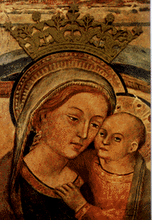
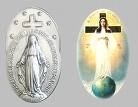

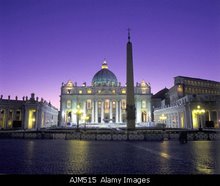

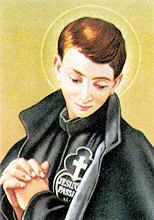
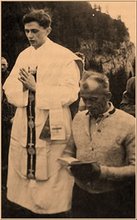
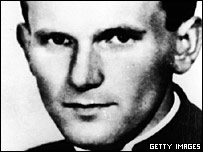
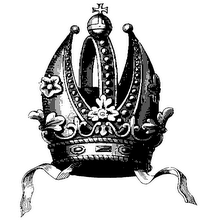
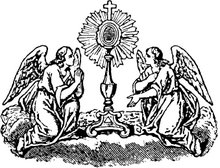
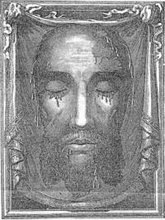







01.jpg)


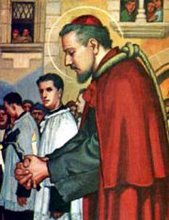























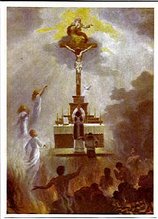


No comments:
Post a Comment